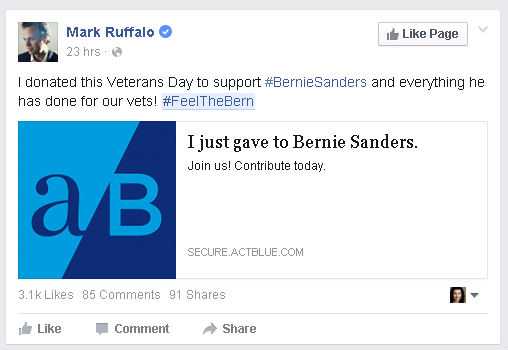Hatch Act guide explains how to tweet, like and share in this political season
Social media makes it easier than ever to violate the Hatch Act, the law that bans feds from using their positions to influence political campaigns.
Donald Trump has 4.8 million followers on Twitter. Hillary Clinton is close behind. Nearly as many people “like” Ben Carson’s campaign Facebook page.
It’s okay for federal employees to be among them, according to the Office of Special Counsel’s updated guide to the Hatch Act. The agency enforces the law which prohibits federal employees from using their jobs to campaign for candidates or parties in partisan elections.
“Social media and email — and the ease of accessing those accounts at work, either on computers or smartphones — have made it easier for federal employees to violate the Hatch Act. Yet there are many activities employees can do on social media and email that do not violate the law,” the guide said.
The Hatch Act says federal employees cannot engage in political activity while at work, on the job or in any official capacity. Social media has made that anything but cut and dried.
For example, it’s okay to display a campaign logo or a candidate’s photo at the top of your personal page on Facebook, Twitter or other social media channels.
You can even use those symbols and photos as your profile picture, but it gets tricky. The profile icon goes with every tweet you post and retweet, and every Facebook link you post, comment on or share. For that reason, the OSC said, you should not put anything on social media while you are on duty or at work, even if the content you would post has nothing to do with politics. Adopt Hillary’s “H” as your profile icon, and it will appear with everything you share, including those photos of your adorable new nephew.
Many feds use aliases rather than their real names on Twitter. The Hatch Act views them all equally. Federal employees are always subject to the Hatch Act, regardless of what they call themselves, the guide said.
If you are a “further restricted employee” in law enforcement, intelligence and some other fields, you do not have to swear off social media for political reasons. You can share information about the candidates in your free time, the OSC said. But don’t do anything more than look at your sites while at work.
It’s also tricky when people you supervise are your Facebook friends or Twitter followers. The Hatch Act is intended to prohibit supervisors from using their positions to pressure subordinates to vote in a certain way. It’s ok if your subordinates see the messages you post to everyone. But directing certain messages to them, either individually or with others who do not work for you, is illegal.
That’s about the talk. But then there’s the action. In past presidential campaign seasons, federal employees have run afoul of the Hatch Act by soliciting donations for candidates or inviting coworkers to fundraisers.
Those bans translate to social media. The updated guide acknowledges that sometimes someone may post solicitations or invitations to fundraisers on your profile page. You’re not responsible for third parties. But don’t think about “liking” or linking to campaign posts that ask for contributions. That’s never ok. It’s alright to accept an invitation to a fundraiser that you received on Facebook. But don’t retweet or share it with your friends.
Copyright © 2025 Federal News Network. All rights reserved. This website is not intended for users located within the European Economic Area.




